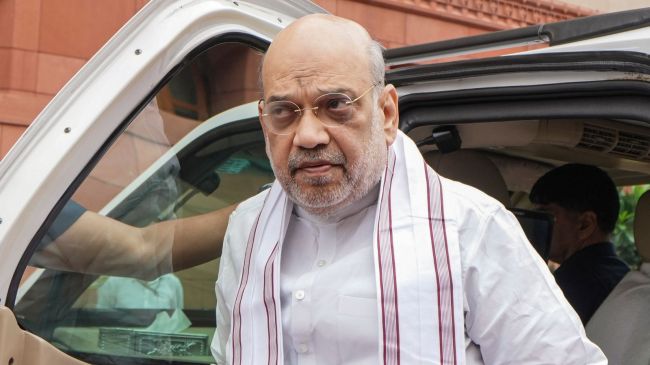Opinion Why the amendment bill to remove ministers detained on graft charges has great scope for misuse
Instead of disqualifying ministers just because they are arrested, we should focus instead on fast-tracking serious criminal cases against ministers, ensuring impartial investigations and swifter trials
 The spirit behind the amendment is laudable: No one should be above the law. But democracy requires more than good intentions
The spirit behind the amendment is laudable: No one should be above the law. But democracy requires more than good intentions Written by Swapnil Tripathi
When Indira Gandhi’s government introduced the 41st Amendment Bill, its provisions sought to grant sweeping immunity to the President, Vice-President, Prime Minister and Governors from criminal proceedings for life. Had it passed, these offices would have been placed beyond the reach of the law. The present government’s proposed amendment takes the opposite route. Rather than insulating political leaders from accountability, it seeks to ensure their removal when under the cloud of criminal proceedings. This juxtaposition may underscore the laudable intent of the current proposal. While sound in principle, the draft suffers from ambiguities that warrant greater deliberation.
According to the Amendment Bill, if any minister, including a CM or the PM, is arrested and remains in custody for 30 straight days for an offence punishable by five years or more in jail, they will automatically lose their office. The PM or a CM must resign in such cases – or else removal is automatic. The Bill also allows them to return to office if they are later released.
At first glance, this seems to align with the ideal that those holding public office must stay above suspicion. In theory, it echoes the Constitution’s expectation that elected leaders follow high ethical standards. But this idea was actually debated and rejected by the Constituent Assembly. When K T Shah proposed barring ministers convicted of offences involving bribery, corruption or moral turpitude, B R Ambedkar acknowledged the good intentions but cautioned that the Constitution should not attempt to micromanage such qualifications. Instead, he argued, the “good sense” of the Prime Minister, legislature and people ought to be relied upon.
The present proposal marks a departure from that choice. While Parliament is constitutionally empowered to amend the text, its draft raises concerns on three counts.
First, the scope of offences. The clause applies when detention is linked to “any law for the time being in force”, where the punishment may extend to five years or more. This phrase is unduly wide. According to research by the Vidhi Centre for Legal Policy, there are more than 2,000 offences in India carrying such penalties. These range from grave offences like organised crime and trafficking to relatively less serious ones, including obstructing a public officer. While the Bill’s Statement of Objects refers to “serious criminal offences,” the actual text is much broader. This could mean a minister could be removed from office for relatively minor charges, just because the law allows a sentence of five years or more.
Second, the reversal of the presumption of innocence. The provision rests on the fact of detention rather than conviction. A hallmark of our legal system is that an accused is innocent until proven guilty. Recent history demonstrates how opposition leaders have been arrested and held in custody for extended periods, only to be discharged later for want of evidence. Removal from constitutional office based on detention alone not only carries a significant political cost but also risks misuse of investigative agencies.
There are better ways. For instance, in former Delhi CM Arvind Kejriwal’s case, the court examined the facts and arguments before directing that he stop performing official duties. That process, however, was still based on deliberation and legal reasoning – not an automatic rule. The amendment also overlooks two key realities: First, that criminal trials in India often take years to conclude – even for elected officials; and second, that it has become harder to get bail under many recently toughened laws.
Third, the potential for political misuse. There is a real risk that this rule could be misused to remove political opponents by arresting them and keeping them in custody long enough to trigger disqualification. Yes, the Bill allows a person to return to office after release. But the damage – loss of power, reputation, and political momentum – would already be done.
Instead of disqualifying ministers just because they are arrested, we should focus instead on fast-tracking serious criminal cases against ministers, ensuring impartial investigations and swifter trials. That would meet the same goal – holding leaders accountable – without weakening democratic safeguards.
The spirit behind the amendment is laudable: No one should be above the law. But democracy requires more than good intentions. It demands careful laws that don’t sacrifice fairness for speed. As Ambedkar once said, democracy requires us to take on “impossible tasks.” Ensuring the purity of public life is one of them. But we must face it not by shortcutting justice, but by strengthening it.
The writer leads Charkha, the Constitutional Law Centre at the Vidhi Centre for Legal Policy





